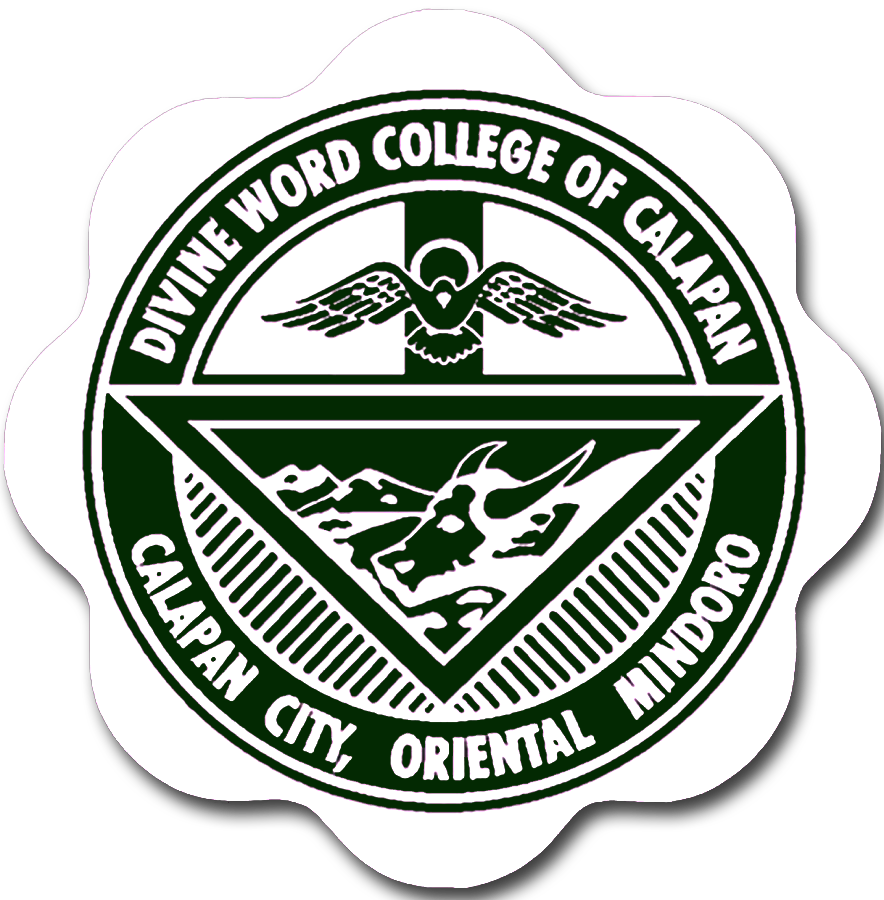Graduate School
Message from the Dean
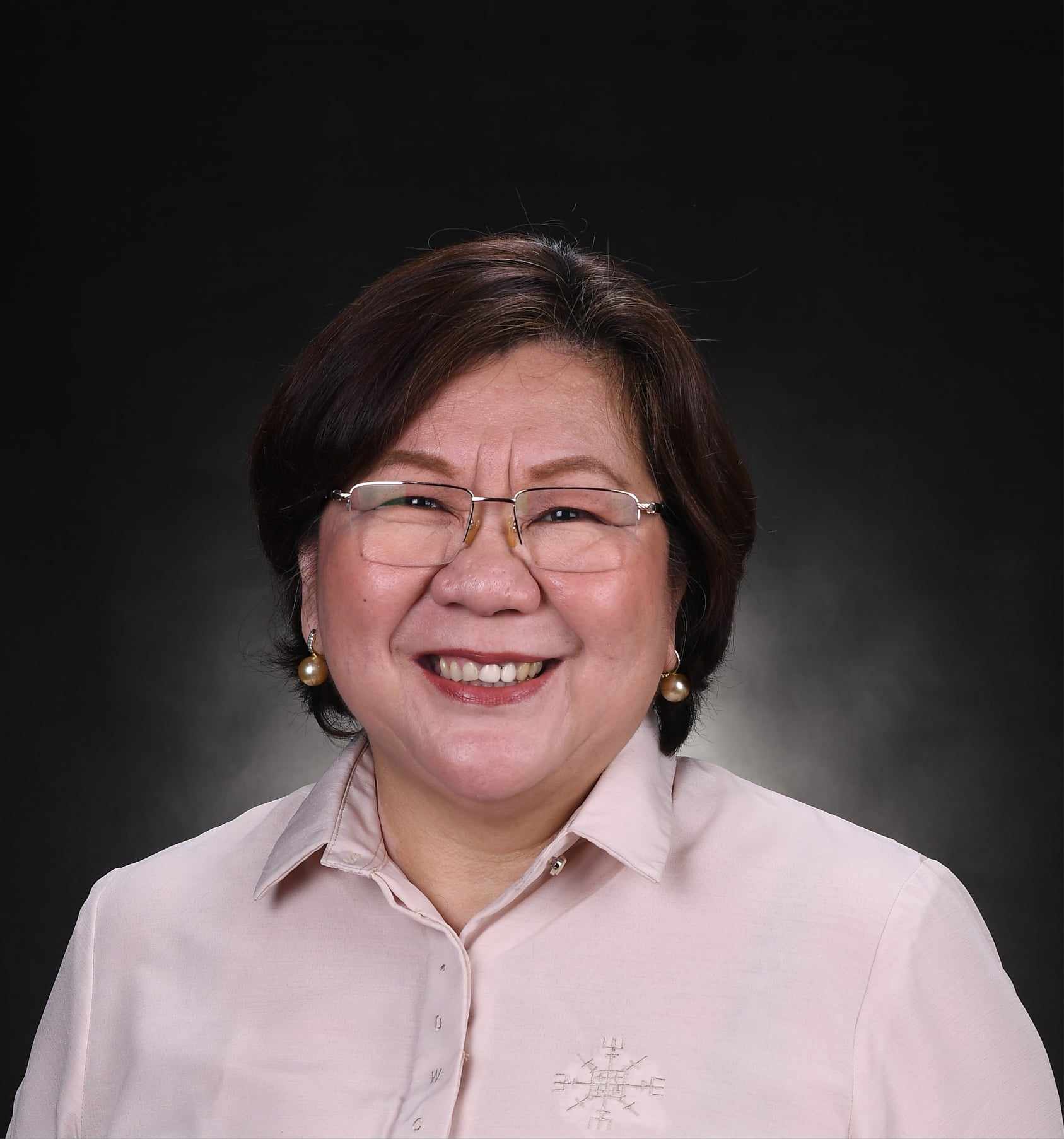 Greetings!
Greetings!
Thank you for being interested in our website. We are delighted to provide information about our Graduate School programs, policies, and guidelines. Nothing can bring us more pleasure than giving you the service you deserve because we value your time and efforts to know more about our Graduate School.
You will face many exciting and rewarding challenges as a graduate school student. However, your advanced study here in the Graduate School will give you in-depth knowledge and practical skills in your field, allowing you to position yourselves as experts in your respective industries.
Take note, however, that your reasons for attending graduate school must be considered from your own perspective and career goals. Only you can decide if enrolling in graduate school is beneficial to you. Also, consider that graduate programs require a more individual initiative. Hence, you will be responsible for your progress toward completing your degree.
Nevertheless, our Graduate School is composed of dedicated and passionate faculty members, administrators, employees, and support groups, who will assist and guide you in your academic journey. We have implemented many changes to encourage our students to finish their degrees or programs to achieve their professional goals. This is aligned with DWCC’s social responsibility of providing qualified professionals in public service, industry, and, most significantly, in the field of education.
Your Graduate School is committed to helping you plan your academic and professional future.
Dr. Aleli C. Dugan, CPA
Dean, Graduate School
- About
- Policies
- Grading System
- Forms
- Programs Offered
- Faculty & Staff
About Graduate School
The DWCC Graduate school is an education core in pursuit for the continuous shaping and development within and outside the province of Oriental Mindoro. With the objective of uplifting the quality of professionals, scientific, research and culture-based, and innovative practices are at the heart of its priorities. More so, the achievement of the threefold functions of education – instruction, research, and social responsibility, particularly in their furtherance through adaptation and continuous implementation of scholarly-based programs in all its dimensions. Conversant in the use of research methods and oriented to ever changing technological and scientific world events, the graduate school can be made an effective and efficient instrument of progress in the field of its choice.
The Divine Word College of Calapan Graduate School commits itself to:
- Further strengthen and if necessary, rebuild, in its students the foundations of knowledge, attitudes, values and skills necessary for professional and civic life congruent to the expected personal, professional and community-based functions and qualities.
- Advanced instructional, community-based approaches and methodologies to provide opportunities for the development of professional’s full potential.
- Act as a center for research taking its lead in embracing new set of research studies and corresponding methodologies for addressing field specific needs, challenges, and innovations in the community.
- Spearhead the fleet of Oriental Mindoro schools and assist the other educational agencies in:
- fostering awareness of national development goals and socio-economic situation
- committing to field-specific improvement
- developing civic and social responsibility and discipline; and
- inculcating faith and pride in the culture of the province and that of the nation
- Commit itself to the service of Christian thought in Education.
Policies
Qualifications for Admission
- An applicant for the master’s program must have a baccalaureate degree from a recognized college or university and must at least have an average of 85% in the entire program to be eligible for enrolment. Students with an average lower than 85% shall be admitted on a probationary basis and will be allowed to continue in the graduate program with the condition of maintaining a grade not lower than 1.50.
- In certain fields of concentration, a graduate student should have either a parallel corresponding undergraduate academic degree or at least 12 units in the undergraduate level parallel to the graduate major being applied for before he/ she is admitted formally into the graduate degree program.
- For the doctorate program, the applicant must have a master’s degree obtained from a recognized college or university and should have obtained an average not lower than 1.50. An applicant holding a non-thesis master’s degree must enroll in a six (6) unit thesis writing course (Thesis 1 and Thesis 2 Courses), produce a thesis with an assigned adviser, orally defend it before a chairperson and panel members and obtain a passing mark prior to admission into the Ph.D. program that allows such applicants.
- A transferee must be able to present the necessary transfer credentials to be considered for admission to the graduate degree program. A recommendation of the Program Coordinator approved by the Dean of the Graduate School must be accomplished prior to enrolment. Under certain instances, the Program Coordinator, with the approval of the Dean of the Graduate School, may recommend and require him/ her to take additional academic units, either foundation courses including the institutional requirement, or core/ major or cognate courses.
Admission Requirements
All students shall be admitted upon submission of the following:
- Computation of grades for MA, MBA, and MPA
- Transfer credentials from the last college/university attended
- PSA Birth Certificate
- Marriage Certificate (for married women)
Upon evaluation of a copy of records, the academic units earned by the students from the last school attended, excluding thesis units, can be considered and credited by the school provided that the following conditions are met:
- the courses taken in the school last attended shall be substantially the same in content in the graduate curriculum of the school; and
- the student has complied with the residence requirement of the school (25%).
No credit will be given for any course work with grade lower than 1.50 for both master’s and doctorate students
- Master’s students are allowed to have a total course load of 12 units per semester during their first year and six (6) to nine (9) units for the first semester of the second year. Upon passing the comprehensive examination, the student will be allowed to enroll in a six-unit thesis writing course for the succeeding semester.
- For a doctorate student, the regular course load is 12 units per semester is allowed for the first two years. After passing the comprehensive examinations, students can enroll in the 12-unit dissertation writing course starting the first semester of the third year.
- During summer terms, both master’s and doctorate students can take a total of six (6) to nine (9) units if the needed courses are being offered by the school.
- A grade of Incomplete (INC) may be given to a student whose course is incomplete at the time the grade was submitted. However, an “Incomplete” (INC) grade must be completed within a period of one (1) year from the semester/term the incomplete grade was incurred.
- Incomplete grades not complied with within the required period will automatically be marked as failed.
- A total of five (5) years is given to a master’s candidate while a period of seven (7) years is given for a doctorate candidate to finish his/her degree upon admission. Any student who fails to comply within the period stipulated will be required to re-enroll in the foundation courses together with the institutional requirement and core courses and retake the comprehensive examinations.
- A leave of absence may be applied for by the graduate school student who wishes to postpone his/ her studies. This must be submitted to the Dean of the Graduate School and is subject for approval of the Vice-President for Academic Affairs. An approved leave of absence does extend the time limit toward degree completion.
- The written comprehensive examinations shall be taken by all graduate students who have completed all the necessary course requirements. The scope of the examinations shall be the totality of the whole program in which a student is enrolled in.
- The GS FORM 1 – CE must be accomplished online and must be submitted to the Record’s Evaluator (Email address: gsdwcc@gmail.com) one week before the scheduled comprehensive examination.
- The passing grade is 1.5. A student who fails the written comprehensive examination shall be allowed one (1) retake only. The following grading system will be followed:
- Passed- Examinees who were able to obtain a score not lower than 13 and whose average is not lower than 85 (1.50)
- Failed- Examinees whose average is lower than 1.50 *will retake all the areas of assessment on the next schedule of comprehensive exam
- Conditional- Examinees who were able to attain an average of at least 85, but with scores in any of the areas assessed lower than 13.
- A committee shall supervise the development and administration of the comprehensive examination.
- The mechanics for the administration of the exam (i.e., scheduling, preparation of test questions and checking) shall be the responsibility of the Committee.
- The committee will give questions encompassing the core/ basic courses, field of concentration (major), and cognates.
- Because of the responsibilities that go beyond the normal working load demanded from the members of the Comprehensive Examination Committee, they shall be given an honorarium.
- Graduate school students may use Quantitative, Qualitative and Mixed Method Research designs both for the Thesis and Dissertation.
- Thesis/Dissertation proposal and final defense will be done only when there is an approved Application for the Thesis/Dissertation (Refer to GS Form 2-OD)
- The DWCC adopts the American Psychological Association (APA) writing style; hence, all students should follow to the APA writing guidelines in all their academic papers.
- Thesis and Dissertation should follow the prescribed format. (See Thesis/Dissertation Format)
- Composition of the Panel Committee:
Masters PhD Proposal Chairman & 3 members Chairman & 4 members Final Defense Chairman & 3 members Chairman & 4 members For the doctoral degree, the panel of examiners for each candidate shall be composed of five (5) persons who should be holders of the doctoral degree, two (2) of whom may be external to the institution. - In order to maintain the production of the scholarly manuscript and to ensure that our students have mastery of their papers, they must pass both the evaluation of their paper and the oral defense/presentation. The Panel Members assess the student’s performance in the oral defense using the prescribed rubrics and give an averaged numerical grade. (See Assessment Rubric for Thesis/Dissertation Defense). To pass the thesis/dissertation writing, the student must receive a grade not lower than 1.50 in the paper, oral defense, and final rating. If the grade is below 1.5 for both masters and doctorate degrees, the student shall be marked Failed/Unsatisfactory and will be advised to re-enroll the Thesis Writing and repeat the process.
- The student must pay the required fees (Refer to Honoraria and Fees).
- The chairperson of the committee presides during the thesis/ dissertation proposal and final defense and is responsible for summarizing the comments and suggestions given by the panel during the defense.
- The thesis adviser assumes the responsibility of monitoring and helping the thesis writer get through finishing the thesis. As a member of the graduate school staff, he/ she is open to change, committed to discharging his functions, and is selfless and willing to share his expertise. He/ she has the humility to accommodate the student’s shortcomings and the enthusiasm to inspire and motivate him to do good research
- To sustain the integrity of the research paper, the following are the guidelines for the paper’s acceptability in relation to the similarity index:
- The manuscript is accepted for oral defense for the proposal if the similarity index is not more than 50% and for final defense, the similarity index should not be more than 30%. In case it is more than the stated index the schedule will be on hold unless the student submits a revised manuscript.
- For the final manuscript, the similarity index should not be more than 10%.
The classroom and thesis adviser should look into this concern to avoid delays in the oral defense and approval of the final manuscript.
- A student shall be allowed to enroll in Thesis/ Dissertation 1 after successfully passing the comprehensive examination.
- A classroom adviser shall be assigned to the Thesis/ Dissertation 1 course to monitor the progress of the student and encourage them to finish their research writing on time.
- The classroom adviser shall conduct series of discussions that would serve as a refresher on research writing. The classroom adviser shall also guide the students in identifying the research gaps.
- The classroom adviser will prepare a letter of recommendation for the Thesis/ Dissertation 1 Adviser based on the focus of the study, subject for approval of the Dean of the Graduate School.
- Upon approval and in consideration of the field of expertise of the chosen adviser, the thesis/ dissertation adviser shall work hand in hand with the classroom adviser to assist the student in the completion of his/her research writing.
The thesis/ dissertation adviser will receive an honorarium based on the new rates/ fees effective AY 2022-2023.Preferably, the Thesis/Dissertation 1 adviser shall continue to be the adviser for the student’s Thesis/ Dissertation 2. Otherwise, the classroom adviser should make another recommendation for this subject for the evaluation and approval of the Dean.
- Upon the recommendation of the thesis/ dissertation 1 research adviser to the classroom adviser, a colloquium for Chapters 1 to 3 will be arranged. The classroom adviser will set the date and the panel of examiners to be approved by the Dean. The thesis/ dissertation advisers are preferably the panel of examiners.
- Once the student passed the colloquium and the necessary revisions were made, the student will be advised to apply for an oral defense.
- For oral defense application, the student must submit in quadruplicate the accomplished Application for Thesis/Dissertation Oral Defense (GS Form 2-OD). This form is available at the Registrar’s Office (Window 1).
- A student who goes beyond the enrolment validity for Writing 1 (a period of one (1) year for completion) shall be required to reenroll in the said course.
- Students who have passed the proposal defense are qualified to enrol for Thesis/Dissertation Writing 2.
- Steps and procedures regarding recommendations for Thesis/Dissertation adviser and colloquium in the Proposal Defense should also be followed for Final Defense.
- The revised Thesis/Dissertation is required to be submitted to the defense panel members for evaluation and verification two (2) weeks before the deadline for the submission of the final Thesis/Dissertation set by the Registrar’s Office.
- Upon successful completion of the revisions, the student is required to submit the following:
- One compact disc containing the revised version of the Thesis/Dissertation should be properly labeled.
- Three hard-bound copies of the Thesis/Dissertation (green color for masters and black for a doctoral program) with a signed approval sheet.
- One compact disc for IMRAD for DWCC Research Journal subject for approval.
- A student who was not able to submit all the requirements listed above within the given period will not be allowed to apply for graduation and will be required to reenroll in the said course.
A candidate for graduation with honors for master’s degree and doctoral degree should complete at least 60% of the total academic unit requirements excluding the units for theses/ dissertations.
Graduation with honors and its prescribed minimum final rating in any subject for the entire duration of the program or course shall be:
- For Thesis Program
With High Distinction1.15
- With no grade below 1.15 in any core, major, or elective subject.
- With a grade of not lower than 1.15 in the oral defense
- With a grade not lower than 1.15 in the comprehensive examination
Master’s Degree Honors Final Rating Requirements With High Academic Excellence 1.00 - With no grade below 1.15 in any core, major, or elective subject.
- With a grade of 1.00 in the oral defense
- With a grade not lower than 1.00 in the comprehensive examination
With Academic Excellence 1.15 - With no grade below 1.25 in any core, major, or elective subject.
- With a grade of not lower than 1.15 in the oral defense
- With a grade not lower than 1.15 in the comprehensive examination
Doctor’s Degree Honors Final Rating Requirements With Highest Distinction 1.00 - With no grade below 1.00 in any core, major, or elective subject.
- With a grade of 1.00 in the oral defense
- With a grade not lower than 1.00 in the comprehensive examination
Honors Final Rating Requirements - For Non-Thesis Program
Honors Final Rating Requirements With High Academic Excellence 1.00 - With no grade below 1.15 in any core, major, or elective subject.
- With a grade of 1.00 in both the Capstone Project and 1.00 in the presentation. (Thesis Equivalent)
- With a grade not lower than 1.00 in the comprehensive examination
With Academic Excellence 1.15 - With no grade below 1.25 in any core, major, or elective subject.
- With a grade of 1.15 in both Capstone Project (Thesis Equivalent)
- With a grade not lower than 1.15 in the comprehensive examination
Grading System
The academic marks of the students both in master’s and doctorate programs will be computed using the following numerical equivalents:
Percentage (Transmuted Grade*)NumericalEquivalentDescription
| 97-100 | 1.00 | Excellent |
| 93-96 | 1.15 | Very Good |
| 89-92 | 1.25 | Good |
| 85-88 | 1.50 | Passed |
| 84 below | 1.75 | Failed |
*Transmutation: (Standard Transmutation adopted in the College Level)
PointsTransmuted Grade
| 100 | 100 |
| 50 | 76 |
| 0 | 67 |
The following components with their corresponding weight in percentage shall be observed in the computation of grades:
For REGULAR SEMESTER and SUMMER
| Midterm Requirement (Midterm) | 25% |
| Final Requirement (Finals) | 25% |
| Course Portfolio (CP) | 30% |
| Class Participation and Attendance (CPA) | 20% |
- The Midterm and Final Requirements may be an examination administered through LMS, case study analysis, research paper, or other similar types of assessment. In any case, rubrics should be provided.
- The Course portfolio consists of academic papers, project-based assignments, written reports, case study and other papers).
Forms and Format
| Download | |
|---|---|
| THESIS DISSERTATION FORMAT | |
| COPYRIGHT FORM | |
| COPYRIGHT STATEMENT | |
| FORM 1 – CE APPLICATION FOR COMPREHENSIVE EXAMINATIONS | |
| FORM 2 – OD APPLICATION FOR THESIS_DISSERTATION DEFENSE | |
| FORM 3 – PR_OD PROPOSAL _FINAL DEFENSE PANEL REPORT | |
| FORM 4 – PC_OD PANEL’S COMMENT ON THESIS_DISSERTATION PROPOSAL _FINAL DEFENSE | |
| FORM 5 – THESIS_DISSERTATION CONSULTATION FORM | |
| ASSESSMENT RUBRIC FOR THESIS_DISSERTATION DEFENSE | |
| FORMAT AND STYLE |
Programs Offered
Doctor Of Philosophy
| Doctor of Philosophy in Educational Management | Download Descriptions |
| Doctor of Philosophy in English Language | Download Descriptions |
| Doctor of Philosophy in Management | Download Descriptions |
Master of Arts in Education
| Master of Arts in Education Major in English Literature | Download Descriptions |
| Master of Arts in Education Major in Filipino | Download Descriptions |
| Master of Arts in Education Major in Mathematics | Download Descriptions |
| Master of Arts in Education Major in Administration and Supervision | Download Descriptions |
| Master of Arts in Education Major in Science Education | Download Descriptions |
| Master of Arts in Education Major in Social Science Teaching | Download Descriptions |
| Master of Arts in Education Major in Teaching English Language | Download Descriptions |
Master in Business Administration
| Master in Business Administration – Thesis Program | Download Descriptions |
| Master in Business Administration – Non-Thesis Program | Download Descriptions |
Master in Public Administration
| Master in Public Administration – Thesis Program | Download Descriptions |
| Master in Public Administration – Non-Thesis Program | Download Descriptions |
Faculty & Staff

Dr. ALELI C. DUGAN, CPA
Dean, DWCC Graduate School
- Certified Public Accountant
- Master in Business Administration
- Doctor of Philosophy in Management
- Part-time Faculty of the School of Accountancy
- Practitioner – BOA Accredited and BIR Accredited for Public Practice
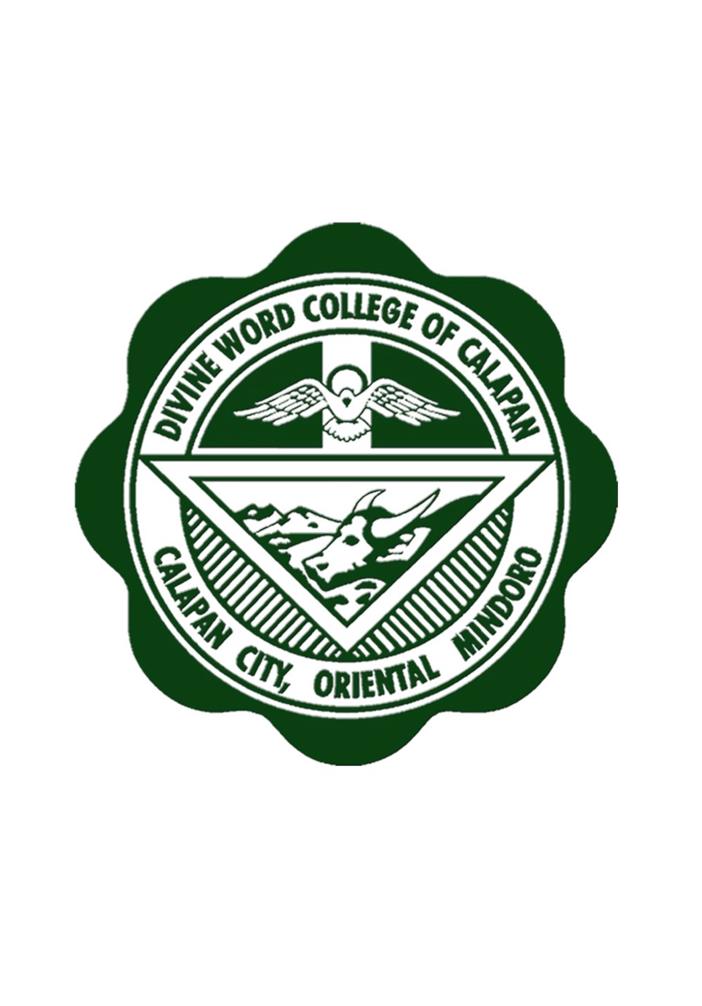
Dr. CHRISTIAN C. AGUTAYA
- Master in Business Administration
- Doctor of Philosophy in Management
- Vice- President for Research, Development & Extension – Mindoro State University
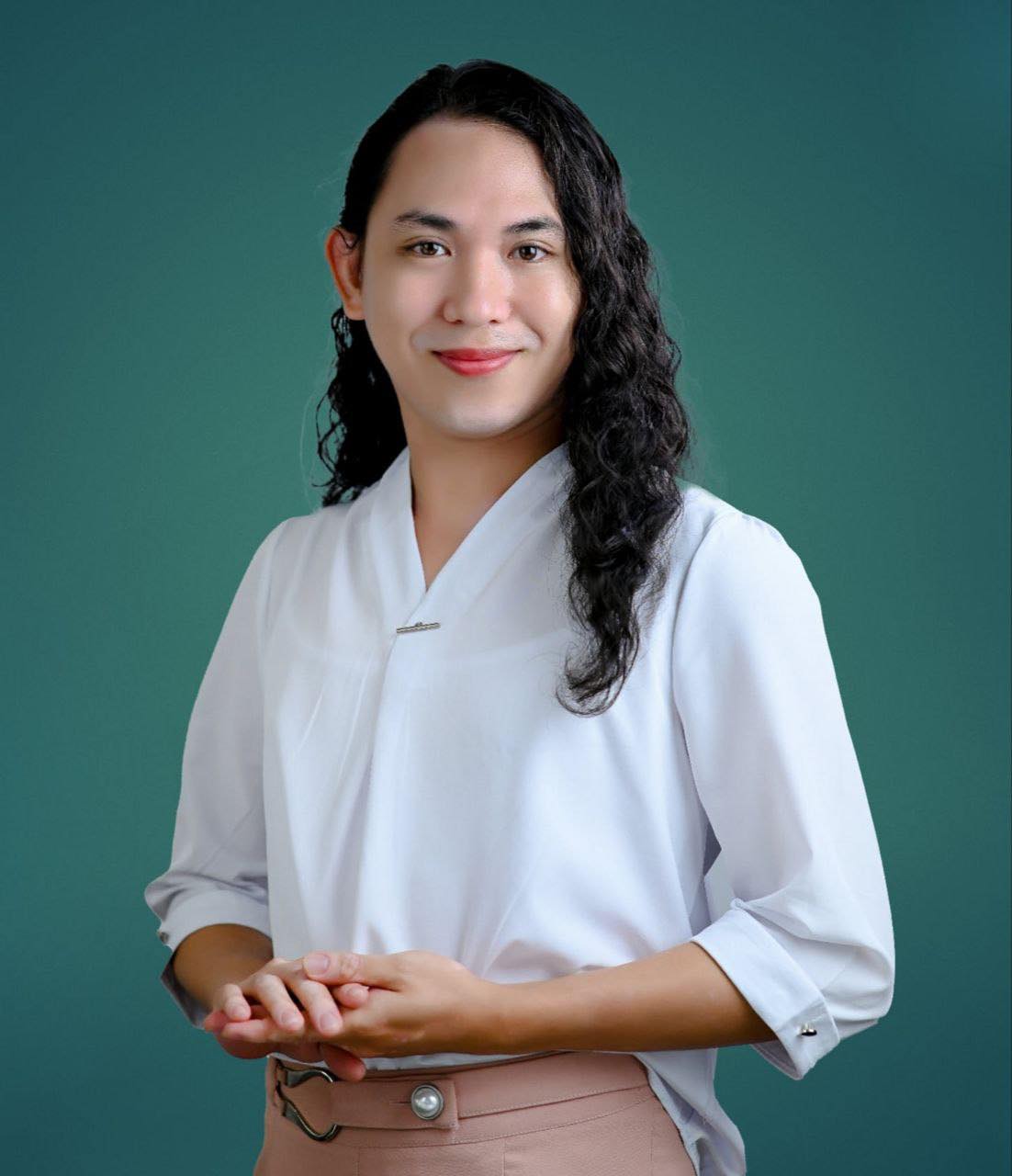
Mr. HARVYN KUSTER B. ACEDILLO, CPA, MBA
- Certified Public Accountant
- Master in Business Administration
- Auditor, Commission on Audit
- Part-Time Faculty – School of Accountancy
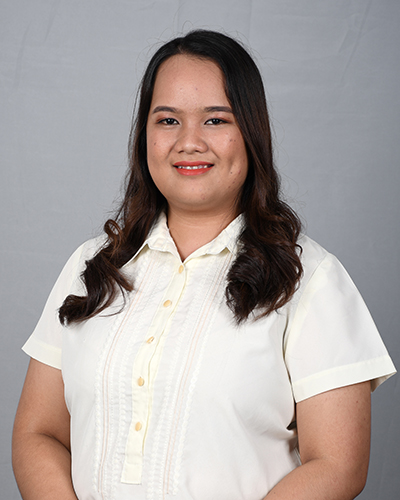
Ms. QUEENIE N. BANDALARIA, LPT, MAEd
College Faculty and Adviser – DWCC School of Education
- Master of Arts in Education major in English Language
- Doctor of Philosophy in English Language Candidate
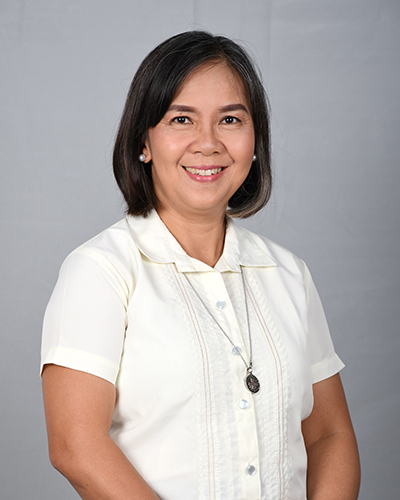
Dr. MARY JANE D. CASTILLO, LPT
- Master of Arts in Education major in Administration and Supervision
- Doctor of Philosophy in Management
- Principal -DWCC Basic Education
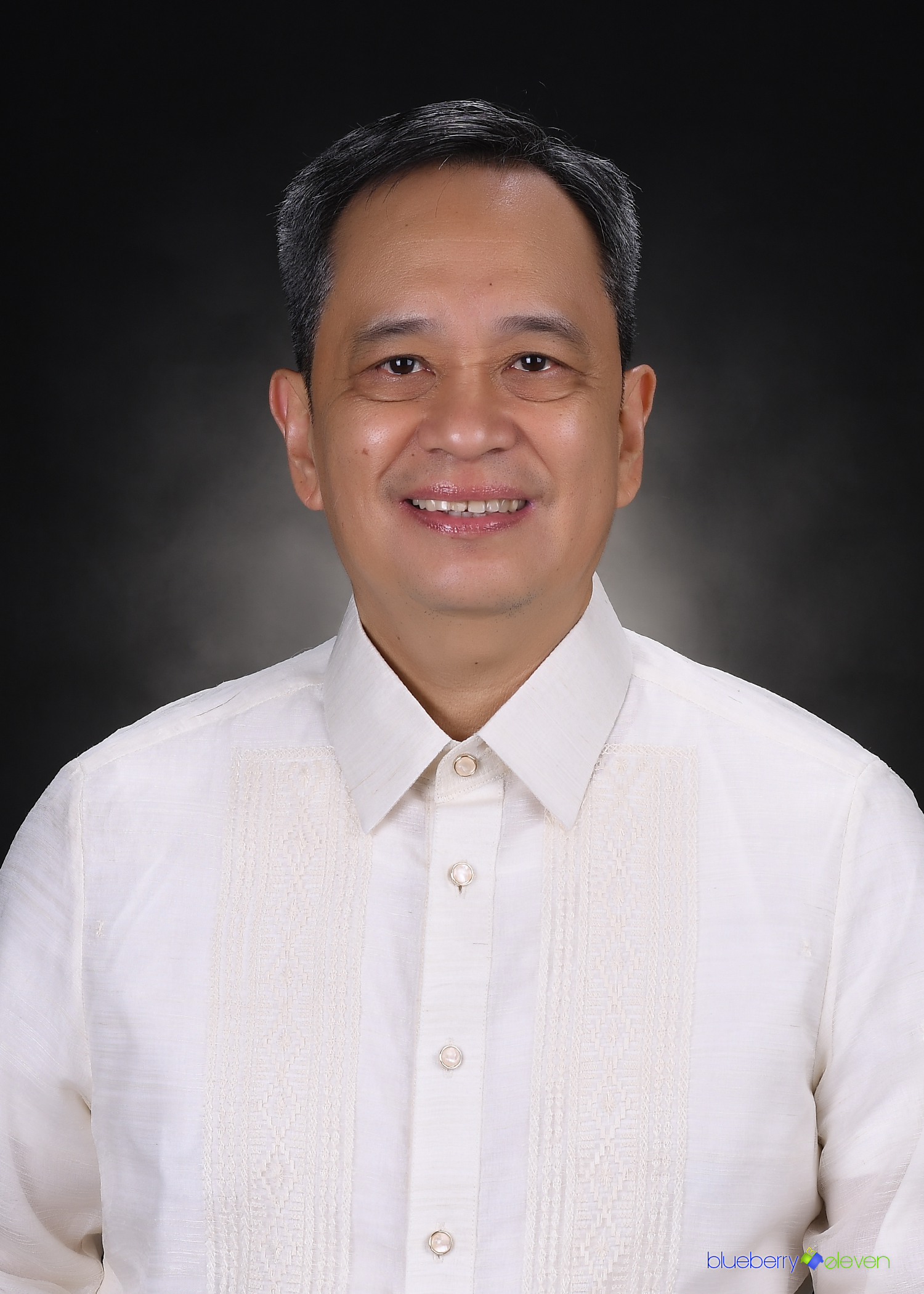
Fr. VICENTE D. CASTRO JR., SVD
DWCC- Vice-President for Administration
- Licentiate in Sacred Theology (S.T.L.) – concentration in Sacred Scriptures
- Bachelor in Sacred Theology – Divine Word Seminary, Tagaytay City- Philippines (Magna Cum Laude)
- Bachelor in Philosophy- Divine Word Seminary, Tagaytay City- Philippines (Cum Laude)
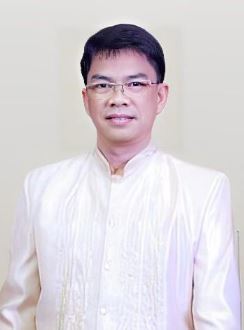
Mr. HERMINIO CATUD
Master of Arts in Education major in Mathematics
- Completed Academic Requirements for a Doctor of Philosophy in Educational Management
- Education Program Supervisor Human Resource Development Division- DepEd MIMAROPA Regional Office
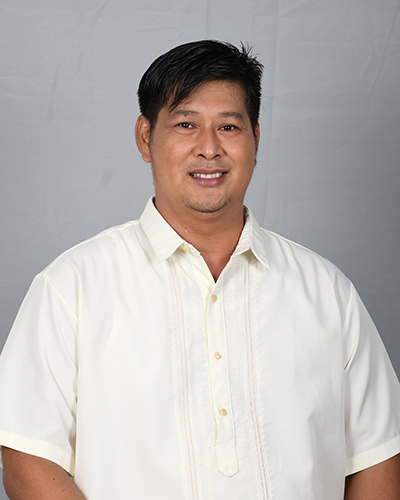
Mr. ROMEL CARANDANG
Master of Arts in Education major in Mathematics
Taking Doctor of Philosophy in Mathematics
- Full-Time Faculty – School of Liberal Arts
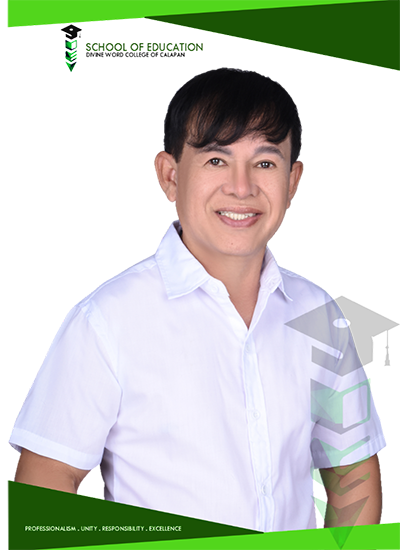
Dr. ARNEL L. CATAQUIZ
- Master in Public Administration Master of Arts in Education major in Filipino
- Doctor of Philosophy in Language Structure
- Retired DepEd Supervisor in Filipino
- Part-time Faculty- DWCC School of Education
- Capella Arts Technical and Vocational Institute Inc- President/CEO
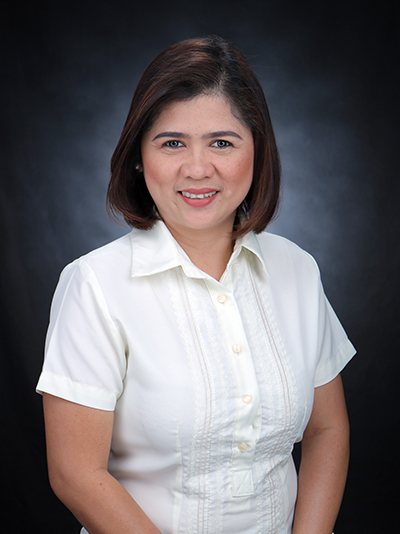
Ms. BELINDA P. CLEOFE
DWCC Quality Assurance Director
- Master in Business Administration
- Completed Academic Requirements for Doctor of Philosophy in Business Administration
- Completed Academic Requirements for Doctor of Philosophy in Management
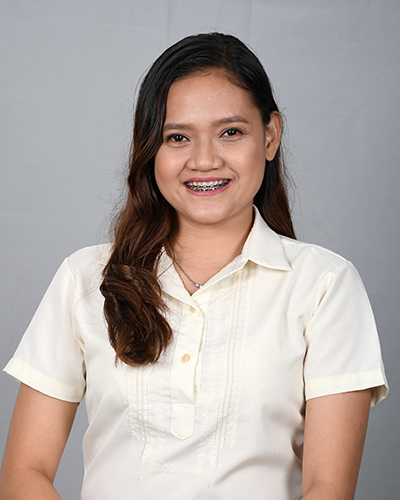
Ms. DIANA KYTH P. CONTI, LPT, MAEd
- Master of Arts in Education major in Science Education
- Completed Academic Requirements in Doctor of Philosophy in Educational Management
- Faculty- DWCC School of Education
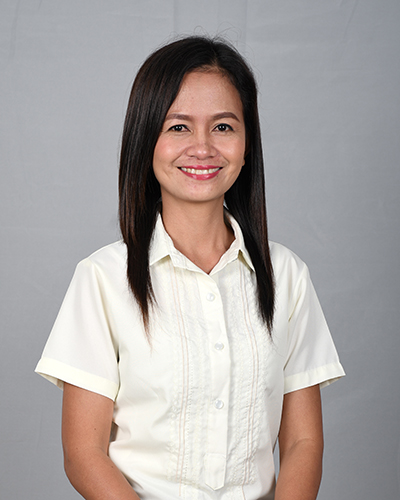
Dr. MARIA ANGIE S. CUBILLAS, LPT
Graduate School Program Coordinator
- Master of Arts in Education major in Science Education
- Doctor of Philosophy in Science Education-Chemistry
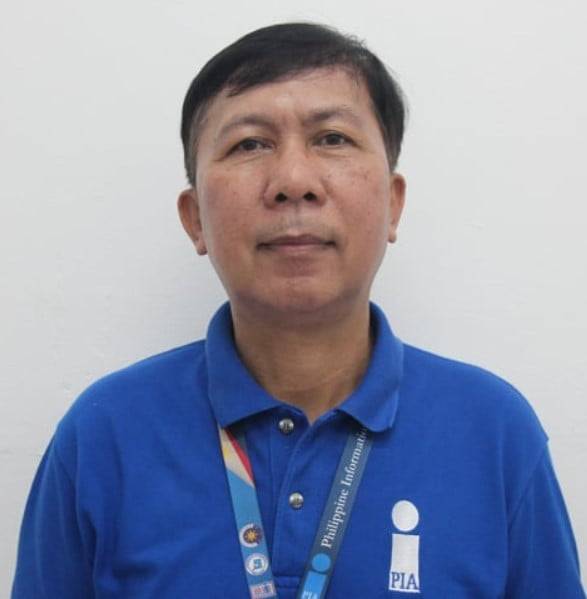
Dr. LUIS T. CUETO
- Master in Public Administration
- Doctor of Philosophy in Management
- Deputy Regional Head
- Philippine Information Agency MIMAROPA
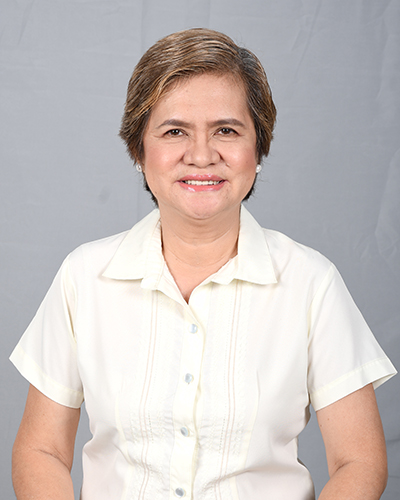
Engr. ROSVELINDA L. DEQUIROS, LPT, Ph.D
Dean, DWCC School of Education
- Master of Arts in Education major in Administration and Supervision
- Master of Arts in Education major in Science Education
- Doctor of Philosophy in Science Education
- Doctor of Philosophy in Management
- Licensed Chemical Engineer

Ms. MARY ROSE D. DILAY
- Master of Arts in Education major in English Literature
- Completed Academic Requirements in Doctor of Philosophy in Applied Linguistics
- Designated as DepED Division Coordinator for SPED, Kindergarten and Multigrade – SDO Oriental Mindoro
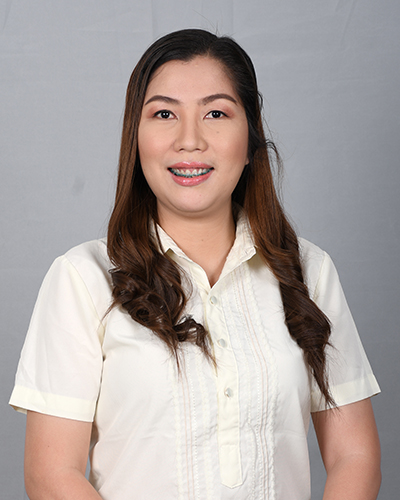
Dr. MAY ANN P. GAWAD
- Master of Arts in Education major in Science Education
- Doctor of Philosophy in Educational Management
- Faculty and Program Coordinator – DWCC School of Liberal Arts
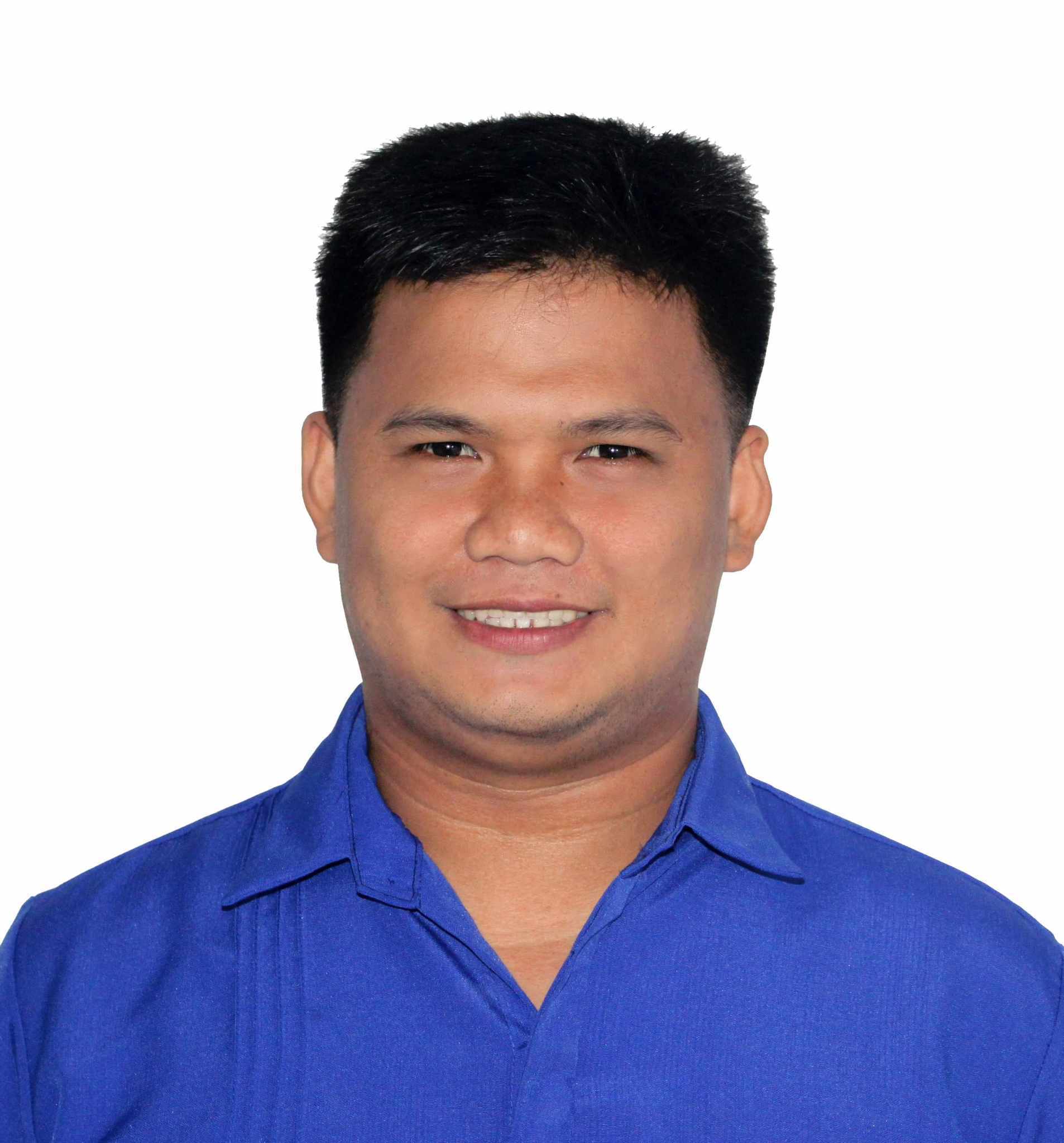
Mr. ZALDIE C. GAWAD
Master in Public Administration
- DOST MIMAROPA – Senior Science Research Specialist taking a Master of Science in Technopreneurship
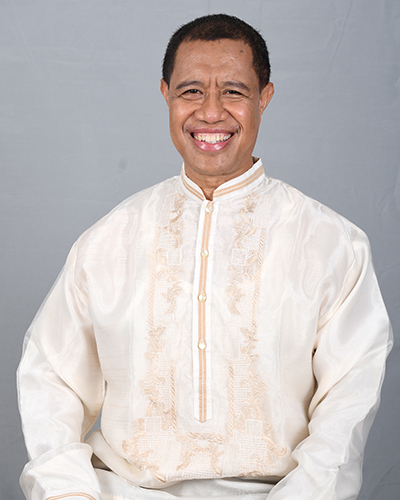
Br. HUBERTUS GURU, SVD, Ed.D
DWCC Vice-President for Academic Affairs
- Master of Arts in Education
- Doctorate in Education

Dr. JOEY B. GUTIERREZ, LPT
- Chief Education Supervisor – Department of Education – Calapan City Division

Dr. GLEACEL M. HERNANDEZ
- Master of Arts in Education major in English Literature
- Doctor of Philosophy in Management
- Master Teacher 1 – Science , Technology and Engineering (STEM) program – Orinetal Mindoro National High School
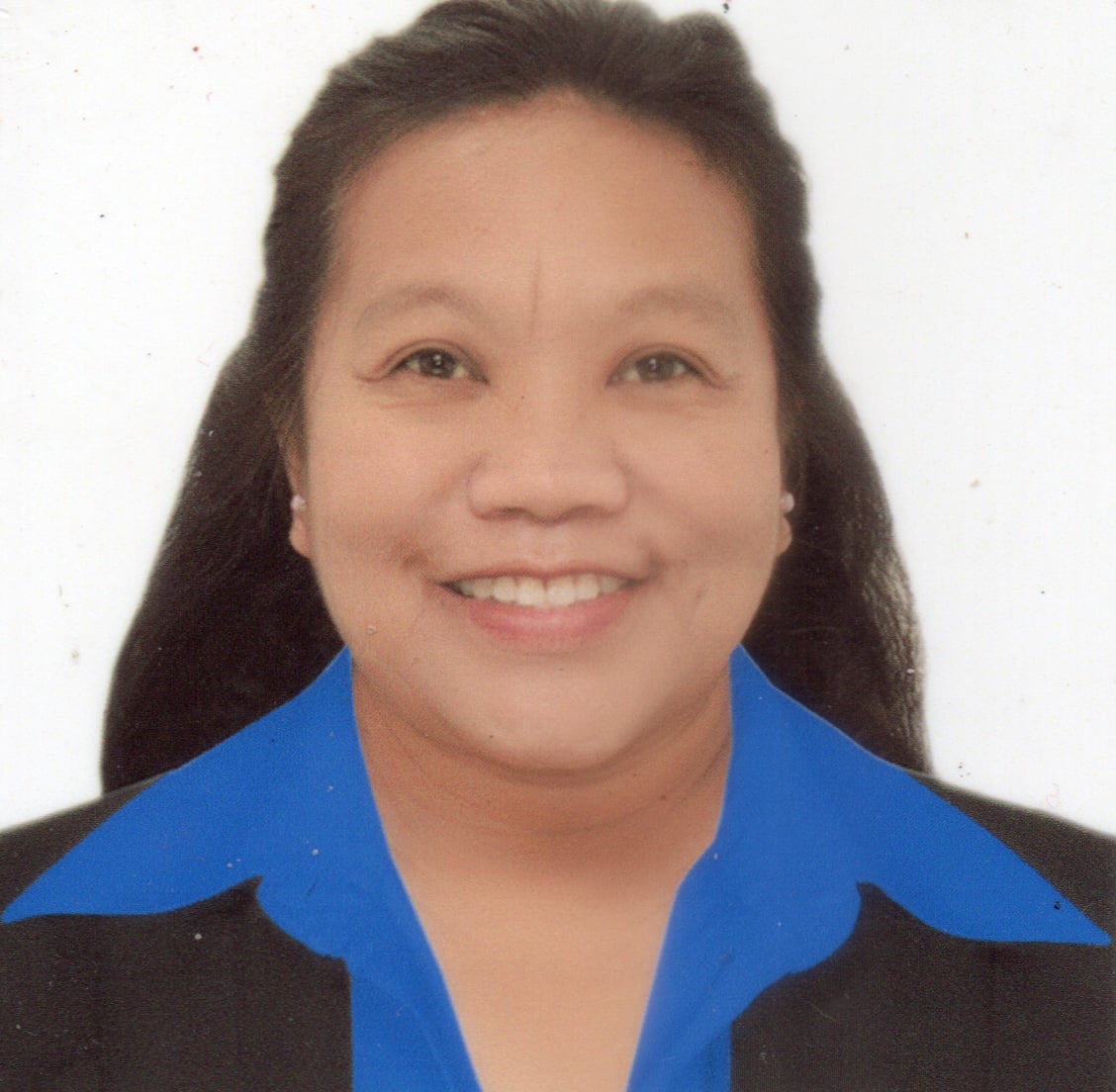
Dr. JEAN S. LASQUITE
- Master of Arts in Education major in Administration and Supervision
- Doctor of Philosophy in Management
- Education Program Supervisor-DepEd MIMAROPA Region’s Curriculum and Learning Management Division

Dr. JENNY A. GALAY-LIMOS
- Assistant Dean of the Graduate program at the Divine Word College of San Jose
- Master in Business Administration
- Doctor of Philosophy in Management
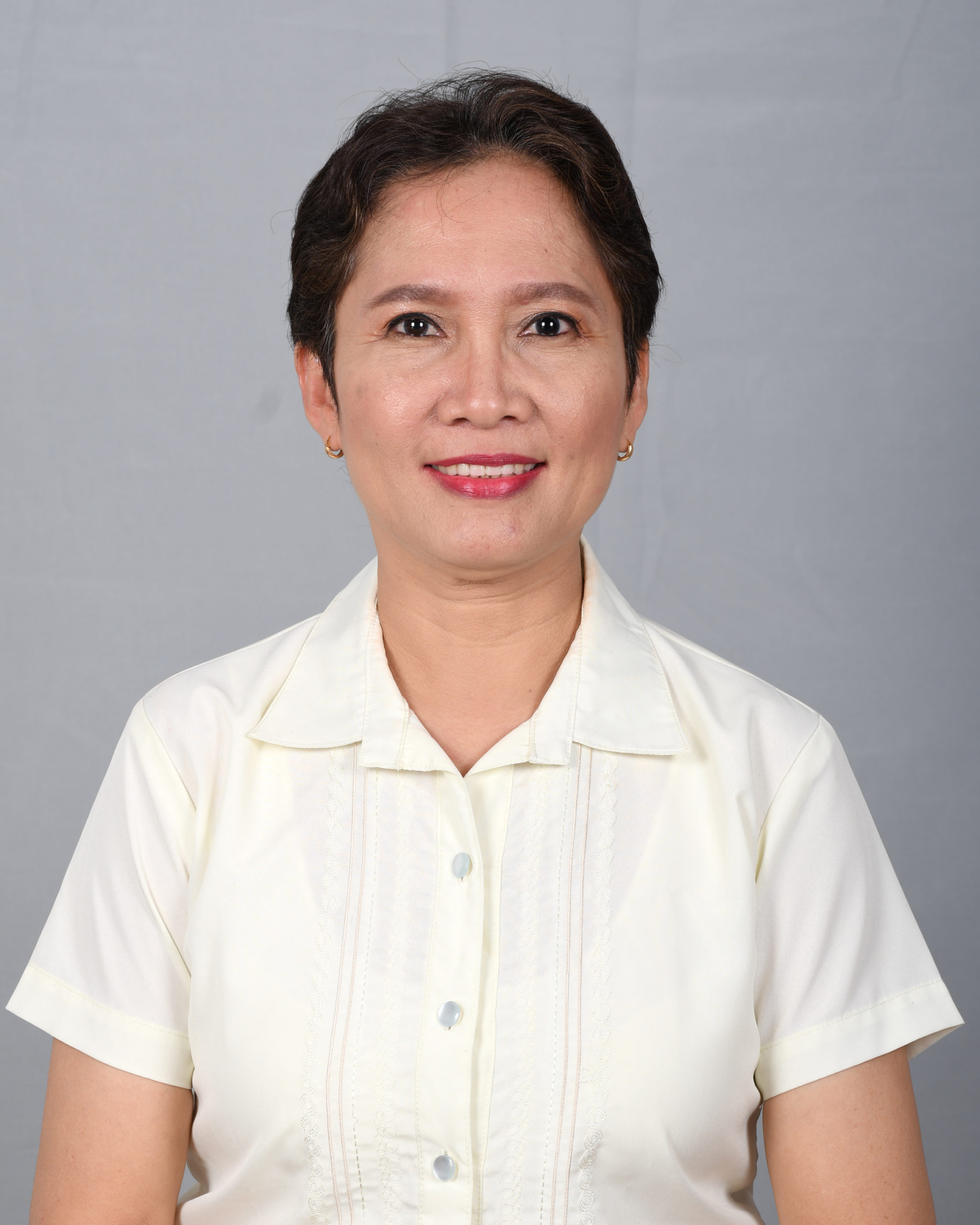
Ms. GRACE D. LUZON, MSEco
- Master in Science-Economics
- Faculty- DWCC School of Business. Hospitality and Tourism Management
- DWCC School Accountatnt
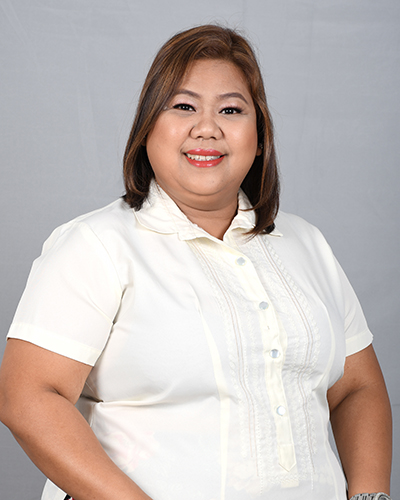
Ms. MICHELLE B. LUZON, MBA
DWCC Research Officer
- Master in Business Administration
- Completed the Academic Requirements for Doctor of Philosophy in Business Administration
- Part-time Faculty- DWCC School of Business

Mr. JAYSON V. MALIMATA,CPA, DBA
- Master in Business Administration
- Doctor of Business Administration
- Sr. Analyst – General Motors Philippines Inc.
- Revenue Accounting Supervisor – Global Virtuoso
- Part-time College Faculty – Far Eastern University (FEU)
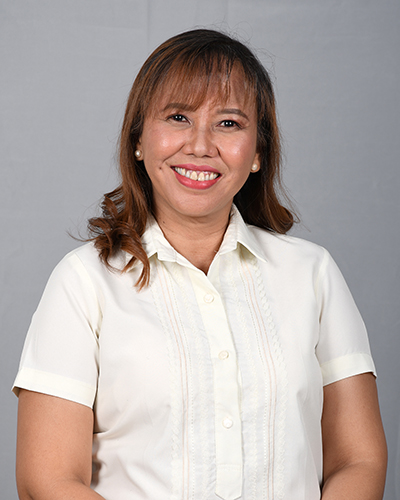
Ms. ARLENE B. MARAMOT
- Master in Business Administration
- Records Evaluator – DWCC Registrar’s Office

Ms. CRISELLE D. MAGDALITA, CPA, MBA
- Certified Public Accountant
- Master in Business Administration
- Formerly Accountant III, Oriental Mindoro Provincial Government
- Full-Time Faculty – School of Accountancy
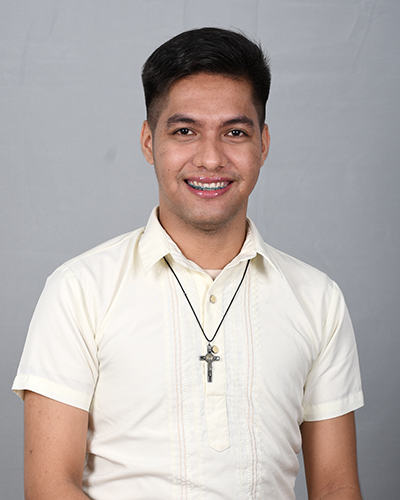
Mr. JOHN MICHAEL S. MENDOZA, LPT, MAEd
Program Chaiperson, School Of Education
- Master of Arts in Education major in Mathematics
- Doctor of Philosophy in Educational Management Candidate
- Faculty of DWCC School of Education
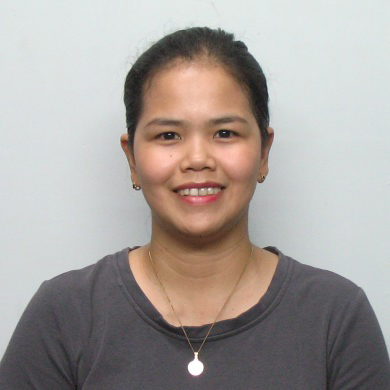
Dr. ALICE R. RAMOS
- Master of Arts in Education major in English Language Teaching
- Doctor of Philosophy in English Language
- Asst. Professor IV – Mindoro State University (MINSU)
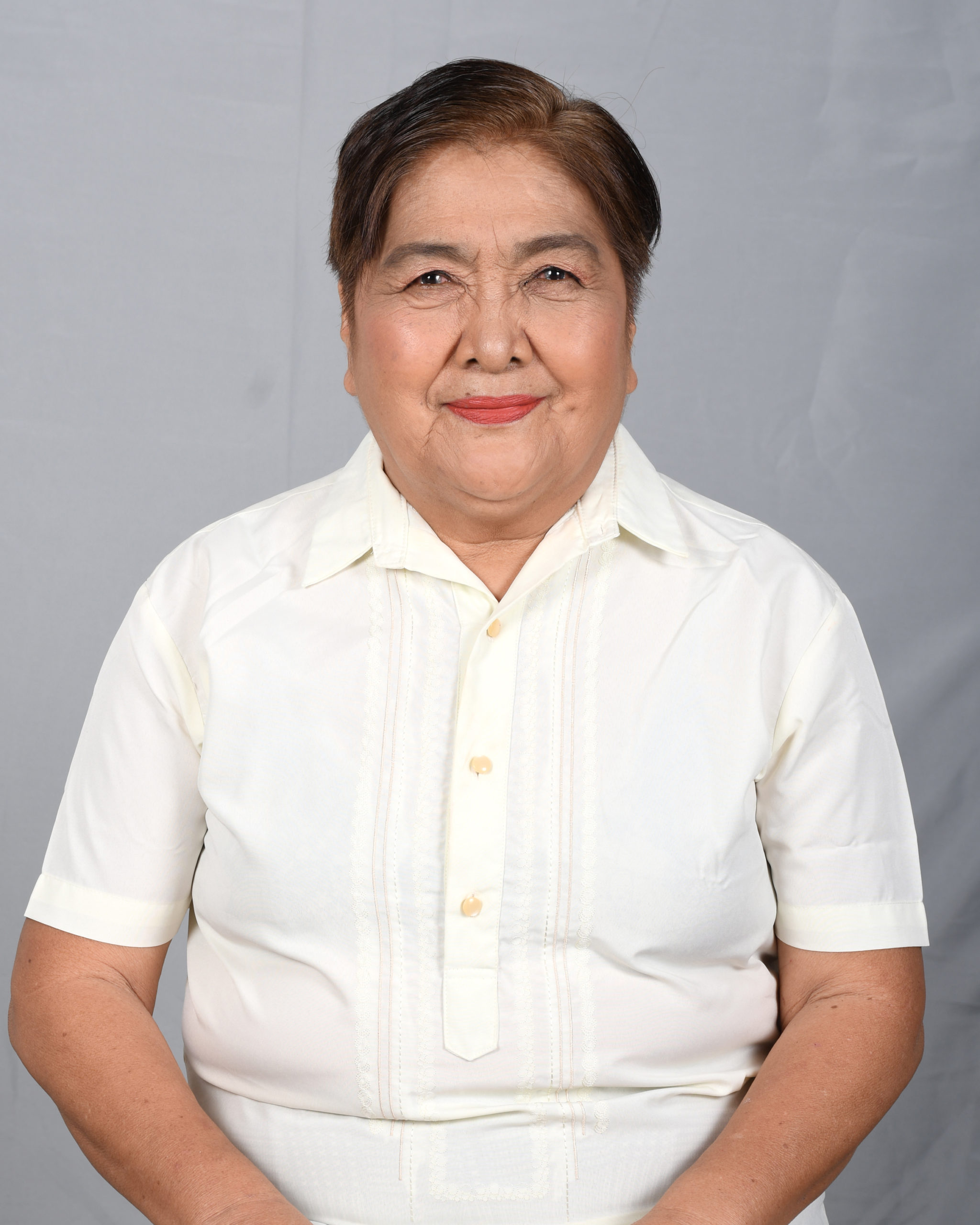
Dr. TERESITA M. SORIQUEZ
- Master of Arts in Education major in Administration and Supervision
- Doctor of Philosophy in Management
- Part-time Faculty- DWCC School of Education
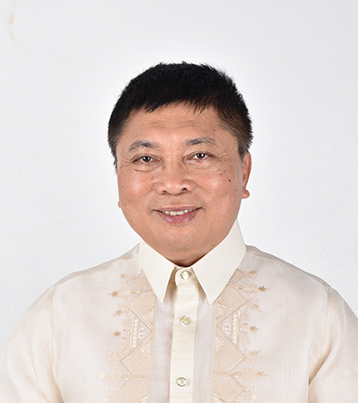
Fr. RENATO A. TAMPOL, SVD, PhD
President, Divine Word College of Calapan
- Master of Arts in Theology
- Master in Business Administration
- Doctor of Philosophy in Human Resource Management
- Part-time Faculty- DWCC School of Business
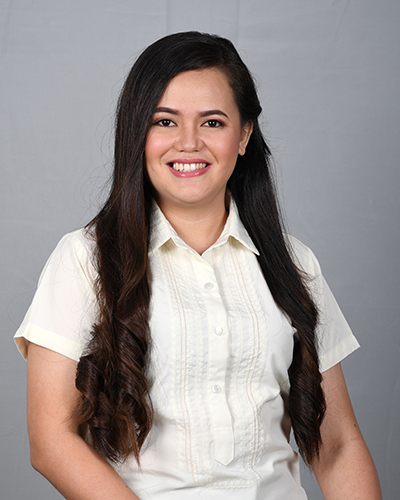
Ms. MA. CHARLENE A. VILLEGAS, MAEd
- Master of Arts in Education major in Filipino
- Doctor in Filipino Candidate
- Former Faculty – DWCC School of Education
The DWCC Graduate school is an education core in pursuit for the continuous shaping and development within and outside the province of Oriental Mindoro. With the objective of uplifting the quality of professionals, scientific, research and culture-based, and innovative practices are at the heart of its priorities. More so, the achievement of the threefold functions of education – instruction, research, and social responsibility, particularly in their furtherance through adaptation and continuous implementation of scholarly-based programs in all its dimensions. Conversant in the use of research methods and oriented to ever changing technological and scientific world events, the graduate school can be made an effective and efficient instrument of progress in the field of its choice.
The Divine Word College of Calapan Graduate School commits itself to:
- Further strengthen and if necessary, rebuild, in its students the foundations of knowledge, attitudes, values and skills necessary for professional and civic life congruent to the expected personal, professional and community-based functions and qualities.
- Advanced instructional, community-based approaches and methodologies to provide opportunities for the development of professional’s full potential.
- Act as a center for research taking its lead in embracing new set of research studies and corresponding methodologies for addressing field specific needs, challenges, and innovations in the community.
- Spearhead the fleet of Oriental Mindoro schools and assist the other educational agencies in:
- fostering awareness of national development goals and socio-economic situation
- committing to field-specific improvement
- developing civic and social responsibility and discipline; and
- inculcating faith and pride in the culture of the province and that of the nation
- Commit itself to the service of Christian thought in Education.
Admission Policies
Transfer of Credits
Grade Requirements
Course Load
Completion of Academic Requirements
Comprehensive Examination
Thesis and Dissertation
Proposal Defense
Final Defense
Graduation with Honors
Qualifications for Admission
- An applicant for the master’s program must have a baccalaureate degree from a recognized college or university and must at least have an average of 85% in the entire program to be eligible for enrolment. Students with an average lower than 85% shall be admitted on a probationary basis and will be allowed to continue in the graduate program with the condition of maintaining a grade not lower than 1.50.
- In certain fields of concentration, a graduate student should have either a parallel corresponding undergraduate academic degree or at least 12 units in the undergraduate level parallel to the graduate major being applied for before he/ she is admitted formally into the graduate degree program.
- For the doctorate program, the applicant must have a master’s degree obtained from a recognized college or university and should have obtained an average not lower than 1.50. An applicant holding a non-thesis master’s degree must enroll in a six (6) unit thesis writing course (Thesis 1 and Thesis 2 Courses), produce a thesis with an assigned adviser, orally defend it before a chairperson and panel members and obtain a passing mark prior to admission into the Ph.D. program that allows such applicants.
- A transferee must be able to present the necessary transfer credentials to be considered for admission to the graduate degree program. A recommendation of the Program Coordinator approved by the Dean of the Graduate School must be accomplished prior to enrolment. Under certain instances, the Program Coordinator, with the approval of the Dean of the Graduate School, may recommend and require him/ her to take additional academic units, either foundation courses including the institutional requirement, or core/ major or cognate courses.
Admission Requirements
All students shall be admitted upon submission of the following:
- Computation of grades for MA, MBA, and MPA
- Transfer credentials from the last college/university attended
- PSA Birth Certificate
- Marriage Certificate (for married women)
Upon evaluation of a copy of records, the academic units earned by the students from the last school attended, excluding thesis units, can be considered and credited by the school provided that the following conditions are met:
- the courses taken in the school last attended shall be substantially the same in content in the graduate curriculum of the school; and
- the student has complied with the residence requirement of the school (25%).
No credit will be given for any course work with grade lower than 1.50 for both master’s and doctorate students
- Master’s students are allowed to have a total course load of 12 units per semester during their first year and six (6) to nine (9) units for the first semester of the second year. Upon passing the comprehensive examination, the student will be allowed to enroll in a six-unit thesis writing course for the succeeding semester.
- For a doctorate student, the regular course load is 12 units per semester is allowed for the first two years. After passing the comprehensive examinations, students can enroll in the 12-unit dissertation writing course starting the first semester of the third year.
- During summer terms, both master’s and doctorate students can take a total of six (6) to nine (9) units if the needed courses are being offered by the school.
- A grade of Incomplete (INC) may be given to a student whose course is incomplete at the time the grade was submitted. However, an “Incomplete” (INC) grade must be completed within a period of one (1) year from the semester/term the incomplete grade was incurred.
- Incomplete grades not complied with within the required period will automatically be marked as failed.
- A total of five (5) years is given to a master’s candidate while a period of seven (7) years is given for a doctorate candidate to finish his/her degree upon admission. Any student who fails to comply within the period stipulated will be required to re-enroll in the foundation courses together with the institutional requirement and core courses and retake the comprehensive examinations.
- A leave of absence may be applied for by the graduate school student who wishes to postpone his/ her studies. This must be submitted to the Dean of the Graduate School and is subject for approval of the Vice-President for Academic Affairs. An approved leave of absence does extend the time limit toward degree completion.
- The written comprehensive examinations shall be taken by all graduate students who have completed all the necessary course requirements. The scope of the examinations shall be the totality of the whole program in which a student is enrolled in.
- The GS FORM 1 - CE must be accomplished online and must be submitted to the Record’s Evaluator (Email address: gsdwcc@gmail.com) one week before the scheduled comprehensive examination.
- The passing grade is 1.5. A student who fails the written comprehensive examination shall be allowed one (1) retake only. The following grading system will be followed:
- Passed- Examinees who were able to obtain a score not lower than 13 and whose average is not lower than 85 (1.50)
- Failed- Examinees whose average is lower than 1.50 *will retake all the areas of assessment on the next schedule of comprehensive exam
- Conditional- Examinees who were able to attain an average of at least 85, but with scores in any of the areas assessed lower than 13.
- A committee shall supervise the development and administration of the comprehensive examination.
- The mechanics for the administration of the exam (i.e., scheduling, preparation of test questions and checking) shall be the responsibility of the Committee.
- The committee will give questions encompassing the core/ basic courses, field of concentration (major), and cognates.
- Because of the responsibilities that go beyond the normal working load demanded from the members of the Comprehensive Examination Committee, they shall be given an honorarium.
- Graduate school students may use Quantitative, Qualitative and Mixed Method Research designs both for the Thesis and Dissertation.
- Thesis/Dissertation proposal and final defense will be done only when there is an approved Application for the Thesis/Dissertation (Refer to GS Form 2-OD)
- The DWCC adopts the American Psychological Association (APA) writing style; hence, all students should follow to the APA writing guidelines in all their academic papers.
- Thesis and Dissertation should follow the prescribed format. (See Thesis/Dissertation Format)
- Composition of the Panel Committee:
Masters PhD Proposal Chairman & 3 members Chairman & 4 members Final Defense Chairman & 3 members Chairman & 4 members For the doctoral degree, the panel of examiners for each candidate shall be composed of five (5) persons who should be holders of the doctoral degree, two (2) of whom may be external to the institution. - In order to maintain the production of the scholarly manuscript and to ensure that our students have mastery of their papers, they must pass both the evaluation of their paper and the oral defense/presentation. The Panel Members assess the student’s performance in the oral defense using the prescribed rubrics and give an averaged numerical grade. (See Assessment Rubric for Thesis/Dissertation Defense). To pass the thesis/dissertation writing, the student must receive a grade not lower than 1.50 in the paper, oral defense, and final rating. If the grade is below 1.5 for both masters and doctorate degrees, the student shall be marked Failed/Unsatisfactory and will be advised to re-enroll the Thesis Writing and repeat the process.
- The student must pay the required fees (Refer to Honoraria and Fees).
- The chairperson of the committee presides during the thesis/ dissertation proposal and final defense and is responsible for summarizing the comments and suggestions given by the panel during the defense.
- The thesis adviser assumes the responsibility of monitoring and helping the thesis writer get through finishing the thesis. As a member of the graduate school staff, he/ she is open to change, committed to discharging his functions, and is selfless and willing to share his expertise. He/ she has the humility to accommodate the student’s shortcomings and the enthusiasm to inspire and motivate him to do good research
- To sustain the integrity of the research paper, the following are the guidelines for the paper’s acceptability in relation to the similarity index:
- The manuscript is accepted for oral defense for the proposal if the similarity index is not more than 50% and for final defense, the similarity index should not be more than 30%. In case it is more than the stated index the schedule will be on hold unless the student submits a revised manuscript.
- For the final manuscript, the similarity index should not be more than 10%.
The classroom and thesis adviser should look into this concern to avoid delays in the oral defense and approval of the final manuscript.
- A student shall be allowed to enroll in Thesis/ Dissertation 1 after successfully passing the comprehensive examination.
- A classroom adviser shall be assigned to the Thesis/ Dissertation 1 course to monitor the progress of the student and encourage them to finish their research writing on time.
- The classroom adviser shall conduct series of discussions that would serve as a refresher on research writing. The classroom adviser shall also guide the students in identifying the research gaps.
- The classroom adviser will prepare a letter of recommendation for the Thesis/ Dissertation 1 Adviser based on the focus of the study, subject for approval of the Dean of the Graduate School.
- Upon approval and in consideration of the field of expertise of the chosen adviser, the thesis/ dissertation adviser shall work hand in hand with the classroom adviser to assist the student in the completion of his/her research writing.
The thesis/ dissertation adviser will receive an honorarium based on the new rates/ fees effective AY 2022-2023.Preferably, the Thesis/Dissertation 1 adviser shall continue to be the adviser for the student’s Thesis/ Dissertation 2. Otherwise, the classroom adviser should make another recommendation for this subject for the evaluation and approval of the Dean.
- Upon the recommendation of the thesis/ dissertation 1 research adviser to the classroom adviser, a colloquium for Chapters 1 to 3 will be arranged. The classroom adviser will set the date and the panel of examiners to be approved by the Dean. The thesis/ dissertation advisers are preferably the panel of examiners.
- Once the student passed the colloquium and the necessary revisions were made, the student will be advised to apply for an oral defense.
- For oral defense application, the student must submit in quadruplicate the accomplished Application for Thesis/Dissertation Oral Defense (GS Form 2-OD). This form is available at the Registrar’s Office (Window 1).
- A student who goes beyond the enrolment validity for Writing 1 (a period of one (1) year for completion) shall be required to reenroll in the said course.
- Students who have passed the proposal defense are qualified to enrol for Thesis/Dissertation Writing 2.
- Steps and procedures regarding recommendations for Thesis/Dissertation adviser and colloquium in the Proposal Defense should also be followed for Final Defense.
- The revised Thesis/Dissertation is required to be submitted to the defense panel members for evaluation and verification two (2) weeks before the deadline for the submission of the final Thesis/Dissertation set by the Registrar’s Office.
- Upon successful completion of the revisions, the student is required to submit the following:
- One compact disc containing the revised version of the Thesis/Dissertation should be properly labeled.
- Three hard-bound copies of the Thesis/Dissertation (green color for masters and black for a doctoral program) with a signed approval sheet.
- One compact disc for IMRAD for DWCC Research Journal subject for approval.
- A student who was not able to submit all the requirements listed above within the given period will not be allowed to apply for graduation and will be required to reenroll in the said course.
A candidate for graduation with honors for master’s degree and doctoral degree should complete at least 60% of the total academic unit requirements excluding the units for theses/ dissertations.
Graduation with honors and its prescribed minimum final rating in any subject for the entire duration of the program or course shall be:
- For Thesis Program
With High Distinction1.15
- With no grade below 1.15 in any core, major, or elective subject.
- With a grade of not lower than 1.15 in the oral defense
- With a grade not lower than 1.15 in the comprehensive examination
Master's Degree Honors Final Rating Requirements With High Academic Excellence 1.00 - With no grade below 1.15 in any core, major, or elective subject.
- With a grade of 1.00 in the oral defense
- With a grade not lower than 1.00 in the comprehensive examination
With Academic Excellence 1.15 - With no grade below 1.25 in any core, major, or elective subject.
- With a grade of not lower than 1.15 in the oral defense
- With a grade not lower than 1.15 in the comprehensive examination
Doctor's Degree Honors Final Rating Requirements With Highest Distinction 1.00 - With no grade below 1.00 in any core, major, or elective subject.
- With a grade of 1.00 in the oral defense
- With a grade not lower than 1.00 in the comprehensive examination
Honors Final Rating Requirements - For Non-Thesis Program
Honors Final Rating Requirements With High Academic Excellence 1.00 - With no grade below 1.15 in any core, major, or elective subject.
- With a grade of 1.00 in both the Capstone Project and 1.00 in the presentation. (Thesis Equivalent)
- With a grade not lower than 1.00 in the comprehensive examination
With Academic Excellence 1.15 - With no grade below 1.25 in any core, major, or elective subject.
- With a grade of 1.15 in both Capstone Project (Thesis Equivalent)
- With a grade not lower than 1.15 in the comprehensive examination
The academic marks of the students both in master’s and doctorate programs will be computed using the following numerical equivalents:
Percentage (Transmuted Grade*)NumericalEquivalentDescription
| 97-100 | 1.00 | Excellent |
| 93-96 | 1.15 | Very Good |
| 89-92 | 1.25 | Good |
| 85-88 | 1.50 | Passed |
| 84 below | 1.75 | Failed |
*Transmutation: (Standard Transmutation adopted in the College Level)
PointsTransmuted Grade
| 100 | 100 |
| 50 | 76 |
| 0 | 67 |
The following components with their corresponding weight in percentage shall be observed in the computation of grades:
For REGULAR SEMESTER and SUMMER
| Midterm Requirement (Midterm) | 25% |
| Final Requirement (Finals) | 25% |
| Course Portfolio (CP) | 30% |
| Class Participation and Attendance (CPA) | 20% |
- The Midterm and Final Requirements may be an examination administered through LMS, case study analysis, research paper, or other similar types of assessment. In any case, rubrics should be provided.
- The Course portfolio consists of academic papers, project-based assignments, written reports, case study and other papers).
| Download | |
|---|---|
| THESIS DISSERTATION FORMAT | |
| COPYRIGHT FORM | |
| COPYRIGHT STATEMENT | |
| FORM 1 – CE APPLICATION FOR COMPREHENSIVE EXAMINATIONS | |
| FORM 2 – OD APPLICATION FOR THESIS_DISSERTATION DEFENSE | |
| FORM 3 – PR_OD PROPOSAL _FINAL DEFENSE PANEL REPORT | |
| FORM 4 – PC_OD PANEL’S COMMENT ON THESIS_DISSERTATION PROPOSAL _FINAL DEFENSE | |
| FORM 5 – THESIS_DISSERTATION CONSULTATION FORM | |
| ASSESSMENT RUBRIC FOR THESIS_DISSERTATION DEFENSE | |
| FORMAT AND STYLE |
Doctor Of Philosophy
| Doctor of Philosophy in Educational Management | Download Descriptions |
| Doctor of Philosophy in English Language | Download Descriptions |
| Doctor of Philosophy in Management | Download Descriptions |
Master of Arts in Education
| Master of Arts in Education Major in English Literature | Download Descriptions |
| Master of Arts in Education Major in Filipino | Download Descriptions |
| Master of Arts in Education Major in Mathematics | Download Descriptions |
| Master of Arts in Education Major in Administration and Supervision | Download Descriptions |
| Master of Arts in Education Major in Science Education | Download Descriptions |
| Master of Arts in Education Major in Social Science Teaching | Download Descriptions |
| Master of Arts in Education Major in Teaching English Language | Download Descriptions |
Master in Business Administration
| Master in Business Administration – Thesis Program | Download Descriptions |
| Master in Business Administration – Non-Thesis Program | Download Descriptions |
Master in Public Administration
| Master in Public Administration – Thesis Program | Download Descriptions |
| Master in Public Administration – Non-Thesis Program | Download Descriptions |

Dr. ALELI C. DUGAN, CPA
Dean, DWCC Graduate School
- Certified Public Accountant
- Master in Business Administration
- Doctor of Philosophy in Management
- Part-time Faculty of the School of Accountancy
- Practitioner – BOA Accredited and BIR Accredited for Public Practice

Dr. CHRISTIAN C. AGUTAYA
- Master in Business Administration
- Doctor of Philosophy in Management
- Vice- President for Research, Development & Extension – Mindoro State University

Mr. HARVYN KUSTER B. ACEDILLO, CPA, MBA
- Certified Public Accountant
- Master in Business Administration
- Auditor, Commission on Audit
- Part-Time Faculty – School of Accountancy

Ms. QUEENIE N. BANDALARIA, LPT, MAEd
College Faculty and Adviser – DWCC School of Education
- Master of Arts in Education major in English Language
- Doctor of Philosophy in English Language Candidate

Dr. MARY JANE D. CASTILLO, LPT
- Master of Arts in Education major in Administration and Supervision
- Doctor of Philosophy in Management
- Principal -DWCC Basic Education

Fr. VICENTE D. CASTRO JR., SVD
DWCC- Vice-President for Administration
- Licentiate in Sacred Theology (S.T.L.) – concentration in Sacred Scriptures
- Bachelor in Sacred Theology – Divine Word Seminary, Tagaytay City- Philippines (Magna Cum Laude)
- Bachelor in Philosophy- Divine Word Seminary, Tagaytay City- Philippines (Cum Laude)

Mr. HERMINIO CATUD
Master of Arts in Education major in Mathematics
- Completed Academic Requirements for a Doctor of Philosophy in Educational Management
- Education Program Supervisor Human Resource Development Division- DepEd MIMAROPA Regional Office

Mr. ROMEL CARANDANG
Master of Arts in Education major in Mathematics
Taking Doctor of Philosophy in Mathematics
- Full-Time Faculty – School of Liberal Arts

Dr. ARNEL L. CATAQUIZ
- Master in Public Administration Master of Arts in Education major in Filipino
- Doctor of Philosophy in Language Structure
- Retired DepEd Supervisor in Filipino
- Part-time Faculty- DWCC School of Education
- Capella Arts Technical and Vocational Institute Inc- President/CEO

Ms. BELINDA P. CLEOFE
DWCC Quality Assurance Director
- Master in Business Administration
- Completed Academic Requirements for Doctor of Philosophy in Business Administration
- Completed Academic Requirements for Doctor of Philosophy in Management

Ms. DIANA KYTH P. CONTI, LPT, MAEd
- Master of Arts in Education major in Science Education
- Completed Academic Requirements in Doctor of Philosophy in Educational Management
- Faculty- DWCC School of Education

Dr. MARIA ANGIE S. CUBILLAS, LPT
Graduate School Program Coordinator
- Master of Arts in Education major in Science Education
- Doctor of Philosophy in Science Education-Chemistry

Dr. LUIS T. CUETO
- Master in Public Administration
- Doctor of Philosophy in Management
- Deputy Regional Head
- Philippine Information Agency MIMAROPA

Engr. ROSVELINDA L. DEQUIROS, LPT, Ph.D
Dean, DWCC School of Education
- Master of Arts in Education major in Administration and Supervision
- Master of Arts in Education major in Science Education
- Doctor of Philosophy in Science Education
- Doctor of Philosophy in Management
- Licensed Chemical Engineer

Ms. MARY ROSE D. DILAY
- Master of Arts in Education major in English Literature
- Completed Academic Requirements in Doctor of Philosophy in Applied Linguistics
- Designated as DepED Division Coordinator for SPED, Kindergarten and Multigrade – SDO Oriental Mindoro

Dr. MAY ANN P. GAWAD
- Master of Arts in Education major in Science Education
- Doctor of Philosophy in Educational Management
- Faculty and Program Coordinator – DWCC School of Liberal Arts

Mr. ZALDIE C. GAWAD
Master in Public Administration
- DOST MIMAROPA – Senior Science Research Specialist taking a Master of Science in Technopreneurship

Br. HUBERTUS GURU, SVD, Ed.D
DWCC Vice-President for Academic Affairs
- Master of Arts in Education
- Doctorate in Education

Dr. JOEY B. GUTIERREZ, LPT
- Chief Education Supervisor – Department of Education – Calapan City Division

Dr. GLEACEL M. HERNANDEZ
- Master of Arts in Education major in English Literature
- Doctor of Philosophy in Management
- Master Teacher 1 – Science , Technology and Engineering (STEM) program – Orinetal Mindoro National High School

Dr. JEAN S. LASQUITE
- Master of Arts in Education major in Administration and Supervision
- Doctor of Philosophy in Management
- Education Program Supervisor-DepEd MIMAROPA Region’s Curriculum and Learning Management Division

Dr. JENNY A. GALAY-LIMOS
- Assistant Dean of the Graduate program at the Divine Word College of San Jose
- Master in Business Administration
- Doctor of Philosophy in Management

Ms. GRACE D. LUZON, MSEco
- Master in Science-Economics
- Faculty- DWCC School of Business. Hospitality and Tourism Management
- DWCC School Accountatnt

Ms. MICHELLE B. LUZON, MBA
DWCC Research Officer
- Master in Business Administration
- Completed the Academic Requirements for Doctor of Philosophy in Business Administration
- Part-time Faculty- DWCC School of Business

Mr. JAYSON V. MALIMATA,CPA, DBA
- Master in Business Administration
- Doctor of Business Administration
- Sr. Analyst – General Motors Philippines Inc.
- Revenue Accounting Supervisor – Global Virtuoso
- Part-time College Faculty – Far Eastern University (FEU)

Ms. ARLENE B. MARAMOT
- Master in Business Administration
- Records Evaluator – DWCC Registrar’s Office

Ms. CRISELLE D. MAGDALITA, CPA, MBA
- Certified Public Accountant
- Master in Business Administration
- Formerly Accountant III, Oriental Mindoro Provincial Government
- Full-Time Faculty – School of Accountancy

Mr. JOHN MICHAEL S. MENDOZA, LPT, MAEd
Program Chaiperson, School Of Education
- Master of Arts in Education major in Mathematics
- Doctor of Philosophy in Educational Management Candidate
- Faculty of DWCC School of Education

Dr. ALICE R. RAMOS
- Master of Arts in Education major in English Language Teaching
- Doctor of Philosophy in English Language
- Asst. Professor IV – Mindoro State University (MINSU)

Dr. TERESITA M. SORIQUEZ
- Master of Arts in Education major in Administration and Supervision
- Doctor of Philosophy in Management
- Part-time Faculty- DWCC School of Education

Fr. RENATO A. TAMPOL, SVD, PhD
President, Divine Word College of Calapan
- Master of Arts in Theology
- Master in Business Administration
- Doctor of Philosophy in Human Resource Management
- Part-time Faculty- DWCC School of Business

Ms. MA. CHARLENE A. VILLEGAS, MAEd
- Master of Arts in Education major in Filipino
- Doctor in Filipino Candidate
- Former Faculty – DWCC School of Education
